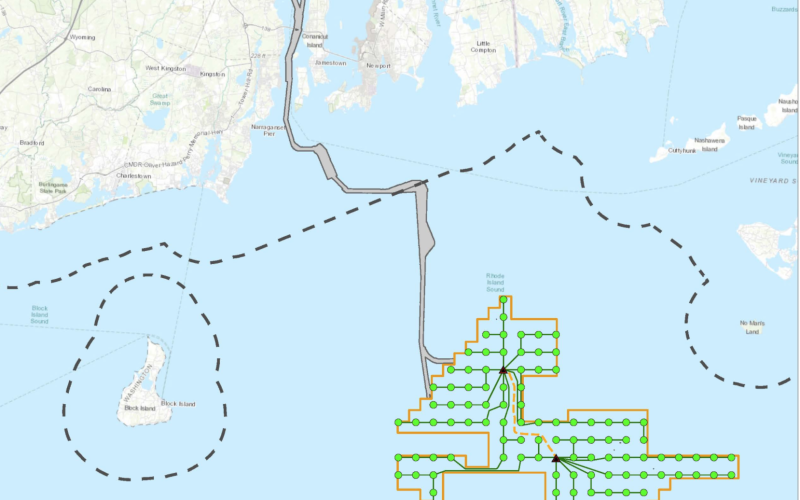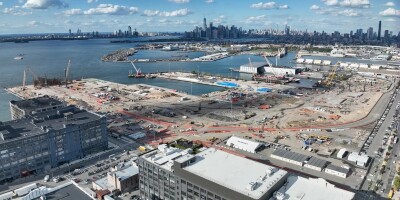Offshore wind developer Ørsted reported $575 million in impairment losses Aug. 15, partly due to construction delays in its 704-megawatt Revolution Wind project off Rhode Island.
The setback is due to decades-old soil contamination at a planned substation where the Revolution Wind power export cable will come ashore at the Quonset Business Park in North Kingstown, R.I.
“Despite encouraging progress on our US offshore wind project Revolution Wind, the construction of the onshore substation for the project has been delayed,” said Ørsted CEO Mads Nipper in the company’s second quarter earnings call.
“This means that we have pushed the commercial operation date from 2025 into 2026, which led to an impairment. This is, of course, unsatisfactory, and we continue our dedicated efforts to de-risk our portfolio.”
The property dates back to Navy Air Station Quonset Point, a Navy airfield and deepwater port dating to World War II that was deactivated in 1974. Pollution issues around the old military base ranged from improper disposal of chemical wastes to fuel leaks and long-lived contamination from firefighting compounds, according to the U.S. Environmental Protection Agency.
The delay is one more hit to the U.S. offshore wind market, coming on with attention focused on the July 13 turbine blade failure on the Vineyard Wind project. One day after Ørsted’s earnings call, New Jersey utility regulators formally cancelled their earlier approvals for the company’s ill-fated Ocean Wind projects.
The Aug. 14 decision from the Board of Public Utilities officially closed the door on what had been New Jersey’s flagship wind energy project. Ørsted abruptly announced at the end of October 2023 that it was pulling out of the plans for 2.24 gigawatts of nameplate capacity, citing inflation, escalating costs and supply chain issues.
Ocean Wind opponents hailed the final BPU move.
“Today is a very important day in our ongoing opposition to these environmentally destructive offshore wind projects,” said Len Desiderio, director of the Cape May County Board of Commissioners.
“The vacation of these Orders by the BPU means that it will be much more difficult for Ørsted or any other Big Wind company to utilize these lease areas just a few miles off Cape May County beaches. As we have seen in Nantucket over the past few weeks, these industrial electricity-generating facilities represent an unacceptable threat to our environment and, consequently, to our local economy.”
After their early expressions of rage over quitting the project, Gov. Phil Murphy's administration agreed to let Orsted keep $175 million in escrow funds in a settlement. Cape May County officials say they will continue to challenge offshore wind development in state and federal courts.
“They say you can never know which straw will break the camel’s back,” said Michael Donohue, a former New Jersey state judge and Cape May’s lawyer in those cases.
“But we can know for sure that the County of Cape May and its partners in the fishing and tourism industries as well as respectable environmental groups certainly contributed to Ørsted’s decision to abandon the Ocean Wind industrial offshore wind projects.”





